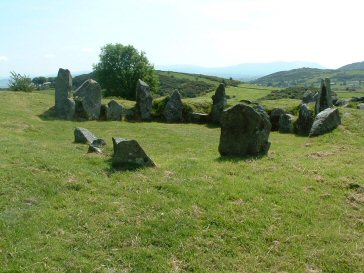I have been assured by a number of people who usually know what they’re talking about, that Jesse James’s forebears hailed from
There are a few cynics too, who would be surprised if this were not so!
In any case this is the story of Ronald Ban Donaldson, whose forebears certainly did, and whose distant American relations were acquaintances of that same James family.
‘Alexander Ban Donaldson was invited to settle the Cloghoge area of the
William Donaldson (1769-1813) emigrated with his family to
After his death, his children spread to the new frontiers of
When the American Civil War came to
The Donaldsons were Southerners, so sided with the rebels. Actually they fought to preserve their way of life, not slavery. Finally the war was over and peace returned.’
Editorial Comment:
The plight of the dispossessed is often conveniently ignored in such family histories.
The ‘Papists’ and ‘mere Irish’ of the Upper Fews saw clan lands held in common for centuries seized and given over to Protestant settlers. The English invented a new word to describe this grand theft: escheated. Lands previously held by those declared ‘outlaws’ were forfeit to the Crown (‘reverted’ to the Crown – as though they were the Crown’s originally!).
English (and other) settlers in the New World took commonly-held tribal lands for their own. The ‘Redskins’ were ‘mere savages’.
Evolution determines ‘winners’ and ‘losers’ on Earth. How many Chambres, Foxalls, Corrys, Bagenals, and so on, now live in Upper Fews or Slieve Gullion ward?
Yes, the energetic and fulsome genocide of more than 50 Indian nations and many millions of their people has reduced the native American population to a mere token presence. But their principles and ideals were never more relevant to the world’s affairs.
‘Treat the Earth and all that dwells within with respect
Remain close to the Great Spirit
Show great respect for your fellow beings
Work together for the benefit of all mankind
Give assistance and kindness wherever needed
Do what you know is right
Look after the well-being of mind and body
Dedicate a share of your efforts to the greater good
Be truthful and honest at all times
Take full responsibility for your actions.’
And perhaps we should remember the words of one of their leaders:
‘Only after the last tree has been cut down
Only after the last river has been poisoned
Only after the last fish has been caught
Only then..
Will you find that money cannot be eaten’.
… Emigration Patterns …
